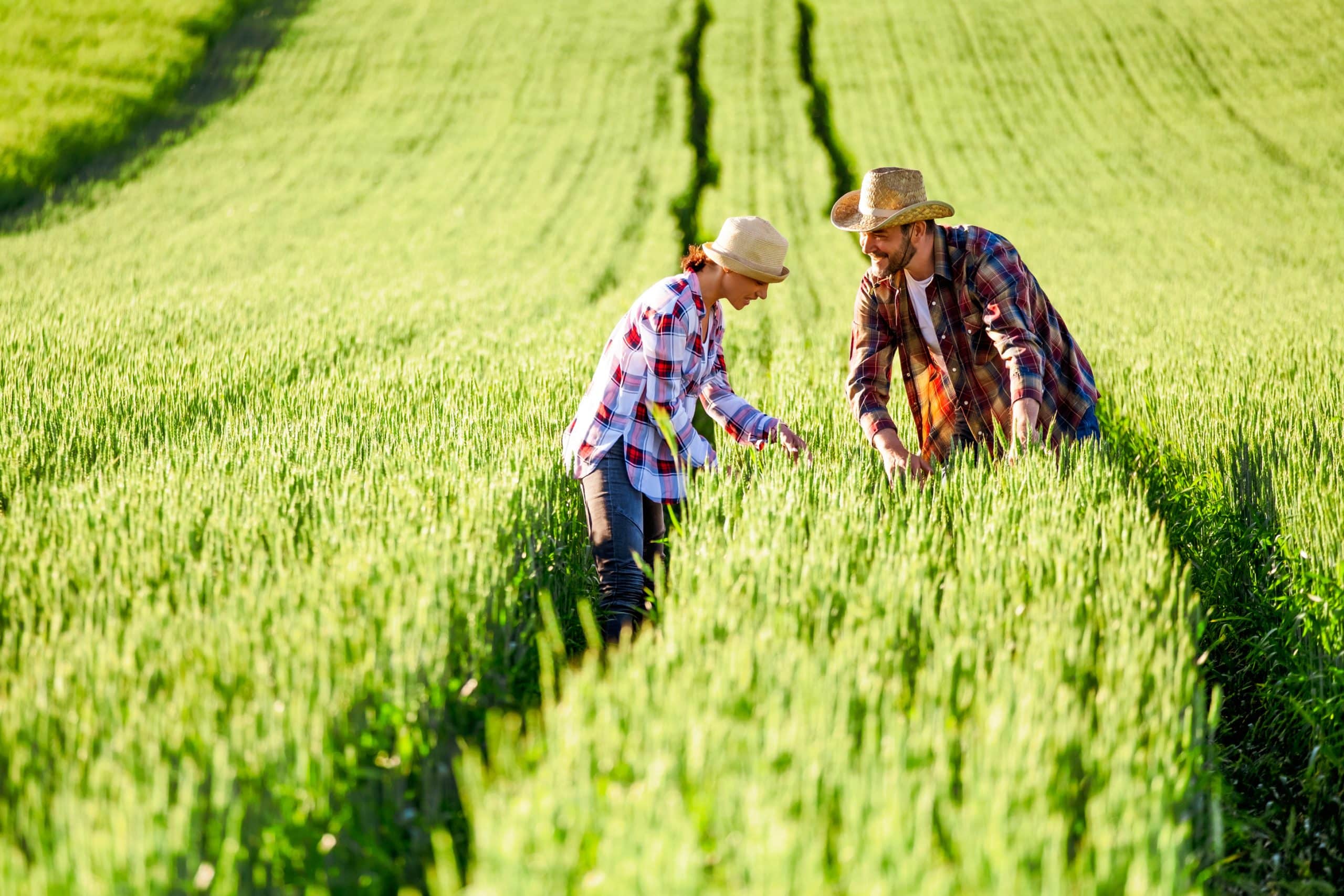What’s the Role of Artificial Intelligence in UK’s Precision Agriculture?

In this technology-driven era, the integration of artificial intelligence in various sectors has provided innovative solutions to a broad range of challenges. Your interest in agriculture and particularly how artificial intelligence (AI) has revolutionised this industry in the UK is a timely exploration. This article provides a thoughtful dissection of the role AI plays in the UK’s precision agriculture. We will delve into specific aspects of AI in agriculture, such as its impact on crop health monitoring, yield prediction, and automated farming systems.
The Significance of AI in Crop Health Monitoring
The first significant role of artificial intelligence in the UK’s precision agriculture is in monitoring the health of crops.
Dans le meme genre : Luxury Oktoberfest packages: how to celebrate in style?
Years ago, farmers would walk through their fields, inspecting crops manually for signs of disease or pests. This process was slow, labour-intensive, and often inaccurate. Artificial intelligence has transformed this aspect of farming. Today, AI-powered drones and remote sensing technologies allow farmers to monitor the health of their crops in real-time. These technologies can cover vast areas rapidly, providing comprehensive and accurate data about crop health.
Machine learning algorithms, a subset of AI, analyse the data collected by these drones and sensors. They can identify patterns that humans might miss and predict potential issues before they become problematic. For instance, they can detect the early signs of plant disease or pest infestation, allowing farmers to take preventative measures early.
Dans le meme genre : How Can Interactive E-books Enhance Children’s Learning Experiences?
Furthermore, AI can help farmers make more informed decisions about their crop health management strategies. It provides insights into which pesticides or fertilisers are most effective for their specific crops and conditions. This not only ensures optimal crop health but also reduces the unnecessary use of chemicals, contributing to a more sustainable agriculture sector.
AI in Yield Predictions and Farming Decision-making
The second critical role of AI in precision agriculture is in forecasting yields and aiding in decision-making.
Estimating the amount of produce a farm will yield is a complex task. It involves considering numerous factors like weather conditions, soil health, and historical yield data. Artificial intelligence simplifies this process. AI algorithms can analyse vast amounts of data from different sources and predict yields with remarkable accuracy.
Predictive analytics powered by AI allows farmers to plan their harvests better, improve their market strategies, and manage their resources more efficiently. It also helps them make educated decisions about which crops to plant based on predicted market demand and climate conditions.
Moreover, AI-powered decision support systems provide farmers with valuable insights and real-time feedback. They suggest best practices and potential improvements in farming techniques. By integrating AI into their farming decisions, UK farmers are able to maximise their productivity while minimising waste.
Artificial Intelligence’s Role in Automated Farming Systems
The third pillar of artificial intelligence in precision agriculture revolves around automated farming systems.
Automated farming systems are no longer a concept of the future; they are here. From self-driving tractors to robotic harvesters, AI is at the forefront of this revolution in the UK.
AI-powered machines can perform a variety of tasks, including planting seeds, watering crops, and harvesting produce. They work around the clock, increasing the farm’s productivity and efficiency. Additionally, these machines can perform their tasks with a high degree of precision, reducing waste and improving the quality of the produce.
Additionally, these machines collect data as they work, contributing to the pool of information that feeds into AI algorithms for crop health monitoring and yield prediction.
Furthermore, AI in automated farming also addresses one of the most significant challenges in the agricultural sector – labour shortage. By automising tasks that were traditionally labour-intensive and time-consuming, AI allows farm workers to focus on other important aspects of farm management.
AI’s Impact on Sustainability in Agriculture
Lastly, artificial intelligence plays a crucial role in promoting sustainability in the agricultural sector.
The global demand for food is rising. However, the resources needed to produce this food, such as land and water, are limited. AI provides solutions to this challenge. By increasing efficiency and reducing waste, AI allows farmers to produce more with less.
For instance, AI-powered precision irrigation systems ensure that crops receive the exact amount of water they need, reducing water waste. Similarly, AI can optimise the use of fertilisers and pesticides, reducing their environmental impact.
Furthermore, AI can contribute to the reduction of greenhouse gas emissions in agriculture. AI can optimise farm operations to reduce fuel consumption and monitor soil health to sequester more carbon.
In addition, AI assists in the creation of smart farming systems that integrate renewable energy sources, like solar and wind energy, into their operations. These technologies are contributing significantly to the development of a more sustainable and resilient agricultural sector in the UK.
Enhancing Food Security and Supply Chain Management through AI
Another significant role of artificial intelligence in the UK’s precision agriculture is in enhancing food security and improving supply chain management.
In times of global uncertainty and increasing demand for food, AI is instrumental in ensuring food security by optimising agricultural processes and outputs. AI algorithms can predict crop yields and market demand accurately, helping farmers to plan their planting and harvesting schedules effectively. This in turn helps to avoid overproduction or food shortages, and ensures a steady supply of food to the market.
AI is also revolutionising the agricultural supply chain. From farm to fork, AI technologies are utilised to track and trace the origin of food products, providing transparency and accountability in the food chain. This not only helps to ensure food safety but also reduces food wastage.
Moreover, AI-powered logistics and inventory management systems enable efficient transportation and storage of agricultural products. These systems can predict demand, optimise delivery routes, and monitor storage conditions, ensuring that food reaches consumers in the best possible condition.
Furthermore, AI can also aid in anticipating and mitigating the impact of potential disruptions in the supply chain, such as weather events or disease outbreaks. This enhances the resilience of the food system and ensures continuity in food supply.
Conclusion: The Future of AI in UK’s Precision Agriculture
Artificial Intelligence is undeniably revolutionising the agricultural sector in the UK. From crop health monitoring and yield prediction to automated farming systems and improved supply chain management, AI is enabling a more precise, efficient, and sustainable form of agriculture.
The integration of AI in agriculture is not only transforming the way farmers work but also addressing some of the most pressing challenges in the sector – labour shortages, environmental impact, and food security. By harnessing the power of AI, the UK is paving the way towards a future of agriculture that is resilient, sustainable, and capable of meeting the growing global demand for food.
However, the full potential of AI in agriculture is yet to be realised. The future will likely see an increase in the deployment of AI technologies, with more advanced algorithms, more sophisticated automation, and more integrated data systems.
As the use of AI in agriculture continues to evolve, it is vital for policymakers, industry leaders, and farmers to work together to address any potential ethical, legal, and socio-economic implications. This will ensure that the benefits of AI are realised in a manner that is inclusive, sustainable, and beneficial for all stakeholders in the agriculture sector.
Undeniably, artificial intelligence is set to play an even more significant role in the UK’s precision agriculture in the coming years, and it is an exciting time to be involved in this innovative field.
